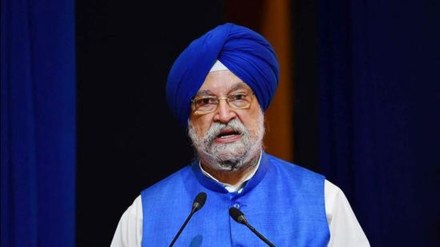The government does not see any major impact on oil supplies to the country owing to the ongoing conflict in West Asia, said Union minister for petroleum and natural gas Hardeep Singh Puri on Monday. However, any further escalation of the situation could hit energy availability, he added.
“Our energy consumption has been steadily growing. Today there is more oil available in the world,” Puri said. “If some parties hold back on availability, there are new suppliers in the market also. In the short to medium term, I don’t see any shortage of oil in the world. Energy availability can get affected if the situation around the Middle East gets exacerbated.”
The minister noted that the country is presently buying oil from 39 sources against 27 earlier. “There is enough oil available and we have enough choices to exercise,” he said.
The recent eruption of the conflict between Iran and Israel had put global oil markets in turmoil once again with Brent prices hovering around $79 per barrel. Analysts and industry people are now concerned that prices could go even higher if there is a further escalation of the conflict around the Middle East.
“We are watching the situation very very carefully. I am very confident that we will be able to navigate through the situation as we have done so far,” Puri said. “I’m also counting on the goodwill of all state actors and non-state actors to carefully brave the consequences of any actions that can be contemplated etc.”
As per analysts, India’s export of petroleum products, which rebounded in September following a slump, can also again face sluggish growth on the back of rising shipping costs if the situation continues. The key red sea route has largely been avoided by shippers after the conflict began, with shipping rates witnessing an uptick.
“There is no immediate impact as yet given neither Iran, Israel or Lebanon are not significant oil trade partners for India, but in the event of a wider middle eastern conflict, it can impact India given India’s continued reliance on Middle Eastern crude oil,” Pulkit Agarwal, Head of India Content (cross commodities) S&P Global Commodity Insights had said.
Shippers have been avoiding the Red Sea route for some time now owing to Houthi attack fears. Agarwal said that owing to heightened tensions, there have been fresh attacks reported on ships in the Red Sea, leading to further slump in commercial shipping traffic. Shipping rates in the region have also seen a slight uptick.
Indian refiners have been seen taking the Cape of Good Hope route for oil product exports ever since Red Sea issues cropped up.
Many tankers are already opting for the longer route via the Cape of Good Hope for the delivery, resulting in higher shipping costs. Africa’s Cape of Good Hope shipping route can extend voyages for up to 14 days or beyond, as per industry people and analysts.
